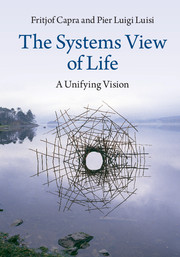Book contents
- Frontmatter
- Dedication
- Contents
- Preface
- Acknowledgments
- Introduction Paradigms in science and society
- I The mechanistic worldview
- II The rise of systems thinking
- 4 From the parts to the whole
- 5 Classical systems theories
- 6 Complexity theory
- III A new conception of life
- IV Sustaining the web of life
- Bibliography
- Index
5 - Classical systems theories
from II - The rise of systems thinking
Published online by Cambridge University Press: 05 April 2014
- Frontmatter
- Dedication
- Contents
- Preface
- Acknowledgments
- Introduction Paradigms in science and society
- I The mechanistic worldview
- II The rise of systems thinking
- 4 From the parts to the whole
- 5 Classical systems theories
- 6 Complexity theory
- III A new conception of life
- IV Sustaining the web of life
- Bibliography
- Index
Summary
Tektology
The Austrian biologist Ludwig von Bertalanffy is commonly credited with the first formulation of a comprehensive theoretical framework describing the principles of organization of living systems. However, twenty to thirty years before Bertalanffy published the first papers on his “general systems theory,” Alexander Bogdanov (1873–1928), a Russian medical researcher, philosopher, and economist, developed a systems theory of equal sophistication and scope, which unfortunately is still largely unknown outside of Russia.
Bogdanov called his theory “tektology,” from the Greek tekton (“builder”), which can be translated as “the science of structures.” Bogdanov's main goal was to clarify and generalize the principles of organization of all living and nonliving structures. In his own words (quoted in a detailed summary of tektology by Gorelik, 1975),
Tektology must clarify the modes of organization that are perceived to exist in nature and human activity; then it must generalize and systematize these modes; further it must explain them, that is, propose abstract schemes of their tendencies and laws…Tektology deals with organizational experiences not of this or that specialized field, but of all these fields together. In other words, tektology embraces the subject matter of all the other sciences.
Information
- Type
- Chapter
- Information
- The Systems View of LifeA Unifying Vision, pp. 84 - 97Publisher: Cambridge University PressPrint publication year: 2014
